Four sentenced to death for Pakistan 'honour killing'
- Published
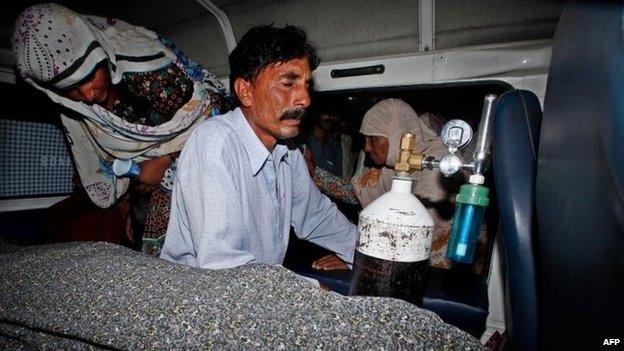
Muhammad Iqbal, husband of murdered Farzana Parveen, with her body shortly after the attack earlier this year
A Pakistani court has given the death sentence to four people for bludgeoning to death a pregnant relative who had married without their consent.
Farzana Parveen, 30, was beaten with bricks and sticks in May outside Lahore's high court. Police deny charges they stood by as it happened.
Ms Parveen's father, brother, cousin and former fiancé were all found guilty of murder on Wednesday. Another brother got 10 years in jail.
The case sparked global outrage.
Ms Parveen had been at the high court to defend her husband in a case brought against him by her relatives. They accused Muhammad Iqbal of abducting her. Ms Parveen had already testified to police that she had married of her own free will.
According the police, a scuffle took place between about 20 members of Ms Parveen's family and 10-15 of Mr Iqbal's, during which she was struck with a brick three times and fatally wounded. He managed to escape.
Husband Muhammad Iqbal spoke to the BBC in May 2014 about the attack
Police say that Ms Parveen was dead by the time officers were able to intervene.
Court officials say the defendants will have the right to appeal in Lahore's high court.
The BBC's Shaimaa Khalil in Islamabad says Farzana Parveen's death by stoning in broad daylight outside a court is shocking even by the standards of Pakistan, where so-called honour killings are common.
Our correspondent says death sentences for family members in such cases are unusual, but many are saying there is a chance Farzana Parveen's relatives could walk free or have their sentences reduced on appeal.

Pakistan 'honour killings'
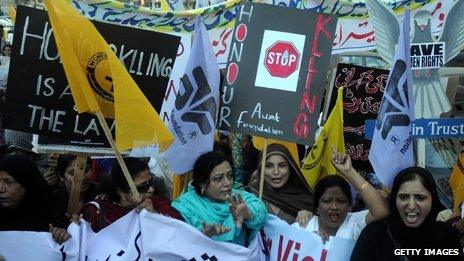
•In 2013, 869 women murdered in so-called "honour killings"
•Campaigners say real number is likely to be much higher
•Of these, 359 were so called "Karo Kari" cases, whereby family members consider themselves authorised to kill offending relatives to restore honour
•Rights groups say conviction rate in cases of sexual and other violence against women is "critically low"
Source: Human Rights Commission of Pakistan annual report 2013, external

There are hundreds of so-called "honour killings" in Pakistan each year.
This case prompted particular outrage, with Prime Minister Nawaz Sharif describing it as "totally unacceptable".
After she was killed, it emerged that Mr Iqbal had killed his first wife six years earlier in order to marry Ms Parveen.
Mr Iqbal's son by his first marriage, Aurangzeb, told the BBC in May that relatives had persuaded him to forgive his father, enabling his release from prison under Pakistani law.
Correspondents say arranged marriages are the norm in Pakistan, and to marry against the wishes of the family is unthinkable in many deeply conservative communities.
- Published30 May 2014
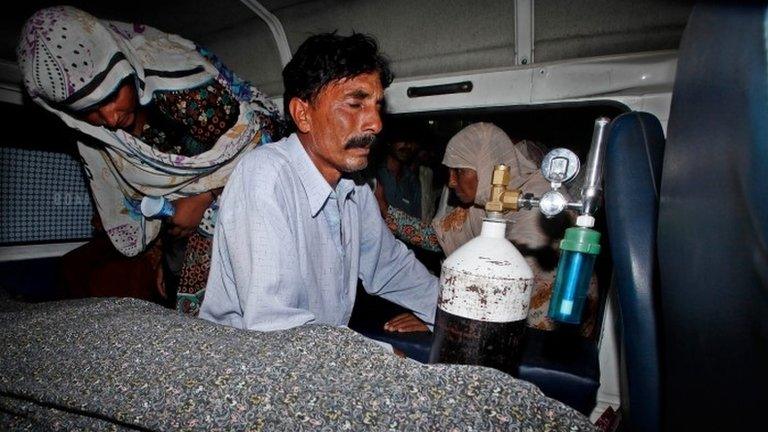
- Published29 May 2014
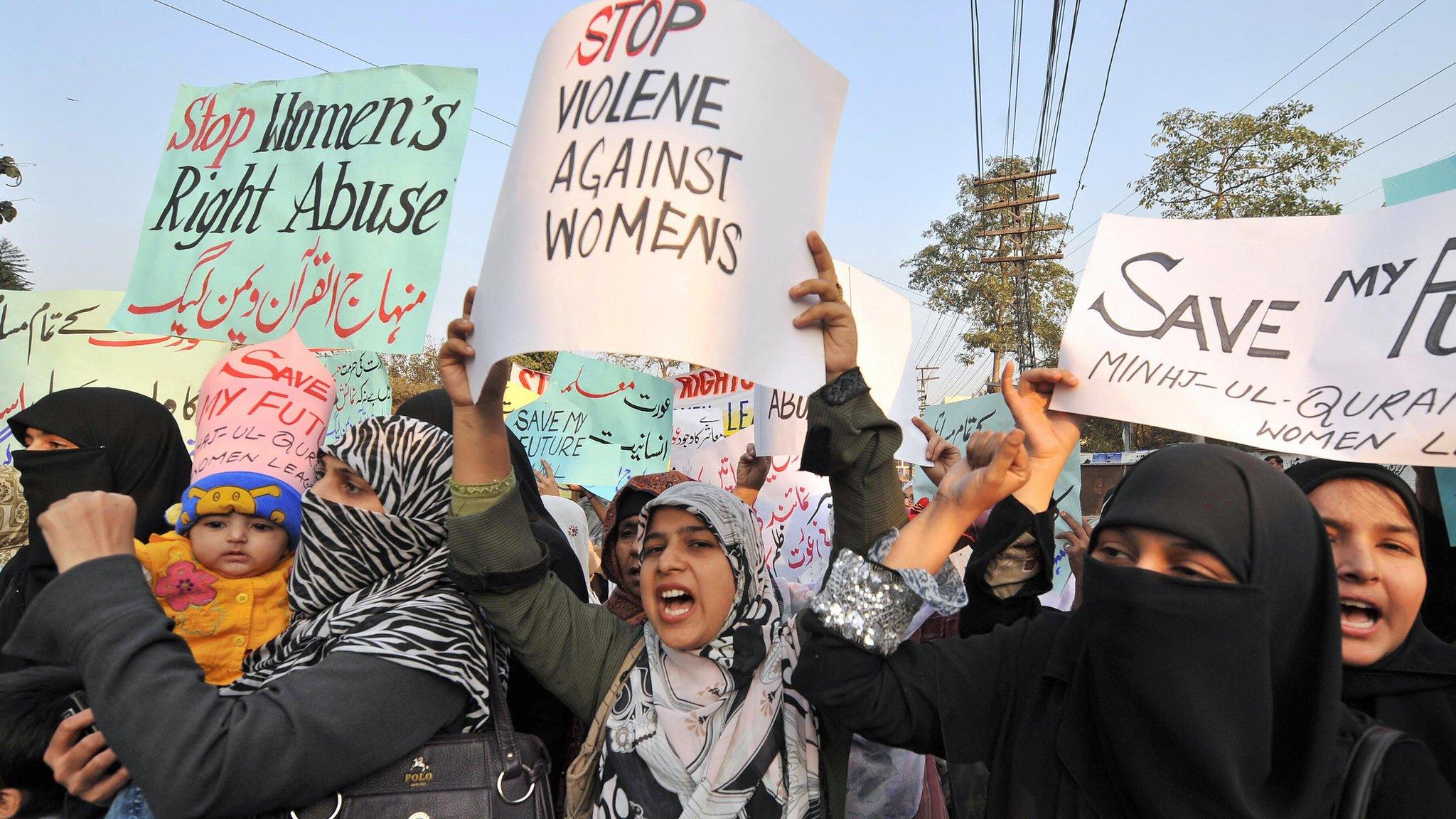
- Published27 May 2014
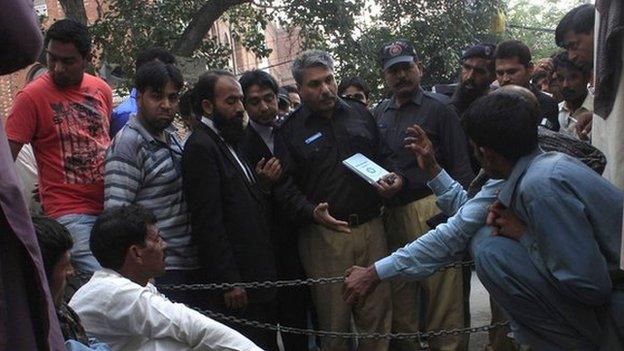
- Published7 January 2014
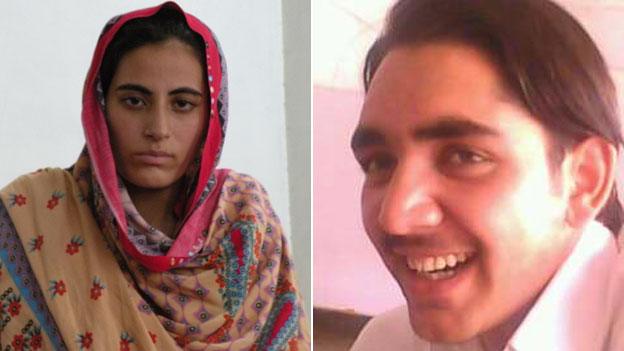
- Published30 January 2014

- Published5 November 2012
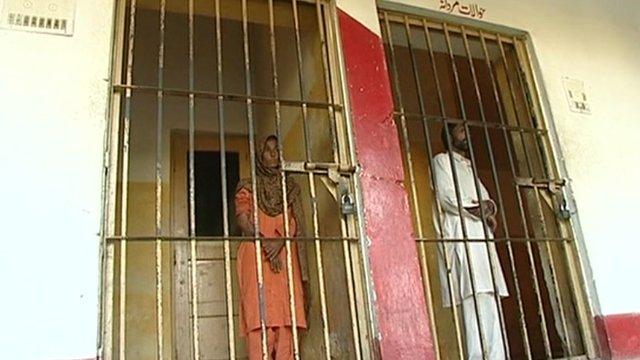
- Published27 June 2013

- Published28 November 2011
